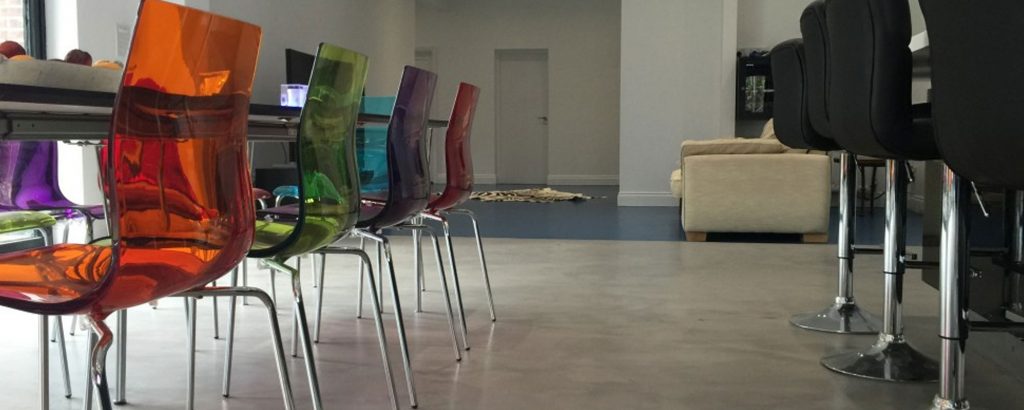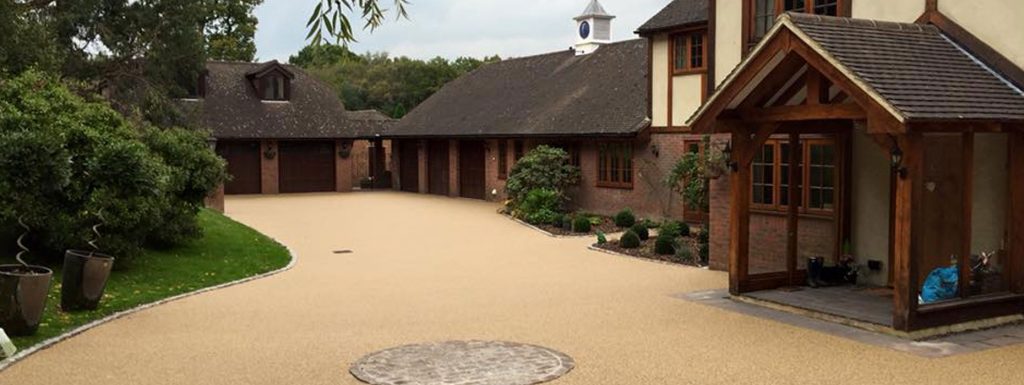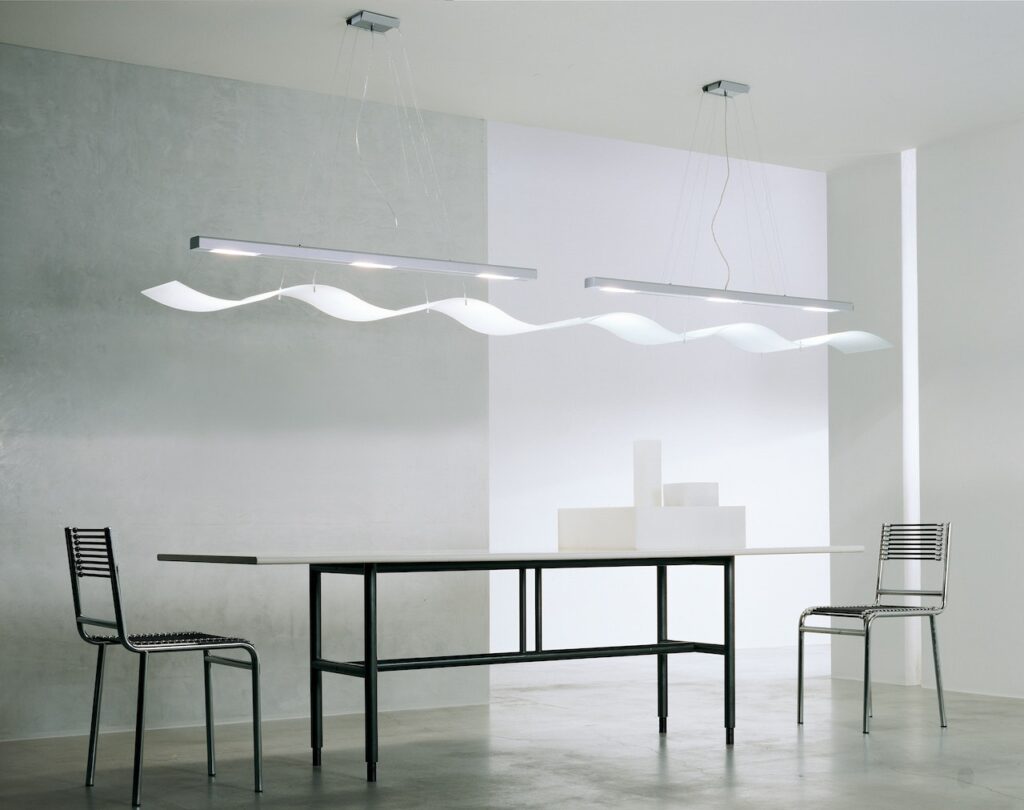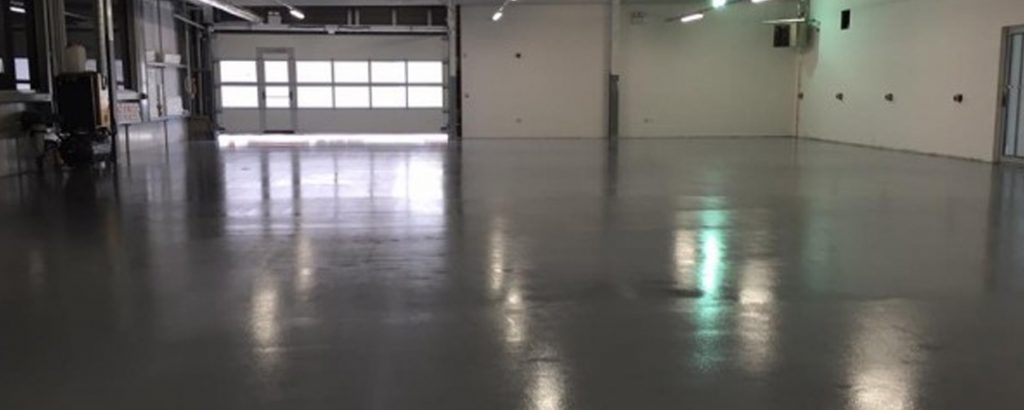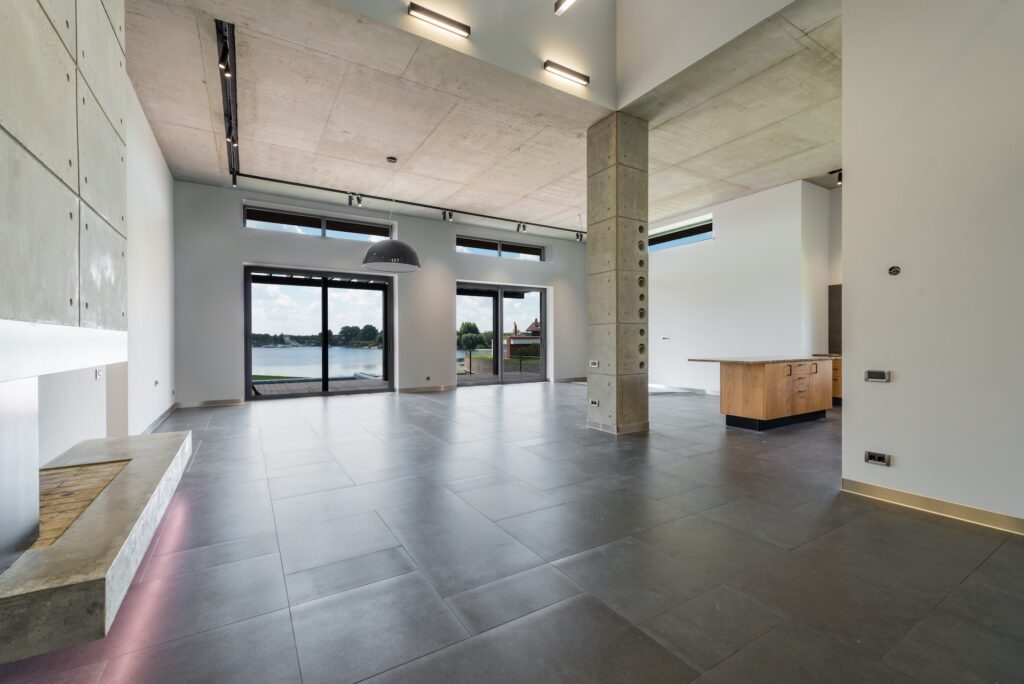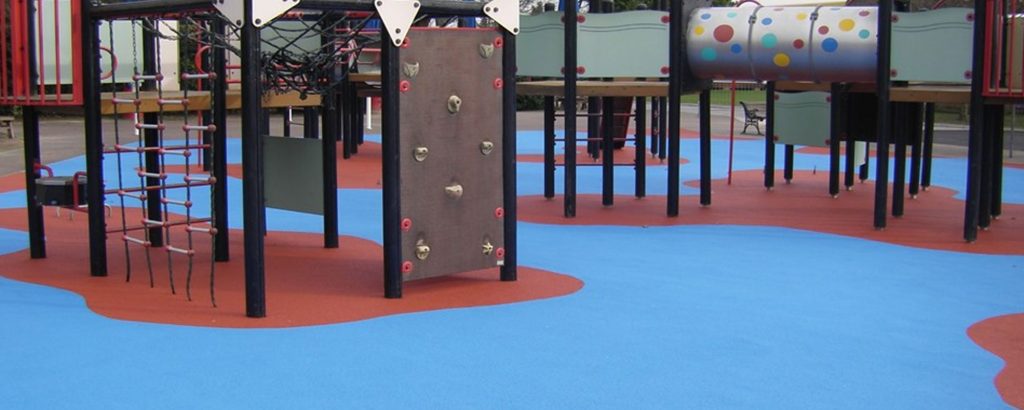Epoxy flooring and tiles each have their place – the choice very much depends on the aesthetic and functionality that you require. Both can offer an attractive solution in your bathroom, kitchen or workspace. Neither option is inherently “better” than the other, but it is likely that one is more suitable to your project than the other. It is important you consider your priorities when it comes to your floor prior to selecting your option. Here’s our quick guide to comparing tiled flooring and epoxy floors for your project:
What is the difference between epoxy flooring and tiles?
Tile flooring consists of any hard floor whereby tiles – potentially made from clay, stone or a ceramic material – are held in place by grouting. These are most commonly seen, although not exclusively, in kitchens and bathrooms in the UK.
Epoxy flooring is a form of hard, resin flooring where a synthetic resin coating is poured or trowelled across a concrete substrate. Available in a series of different colours and finishes (matte, glossy and satin), epoxy flooring creates a flat, smooth hard floor surface. Epoxy flooring can also be applied over different designs including tyles to provide a longer-lasting, hard wearing surface.
Comparing epoxy floor vs tiles
Tiles vs Epoxy: Aesthetics
You are most likely aware of the design options that a tile flooring can offer. Most commonly, square tiles are placed in either a single colour or in two colours in a set pattern. However, additional options for tile flooring include a mosaic, herringbone or more bespoke pattern to your needs. Tiles are also available in different shapes including rectangle and diamond.
In contrast to tiles, epoxy flooring is poured across a surface, creating no gaps or lines across the floor, unlike tiling. It can be a single colour of your choice, or upgraded to include a flake finish where a series of flakes of varied colours are added as part of the finish.
Arguably the closest comparison to tile flooring is terrazzo flooring, which combines the decoration of tiled flooring, with a seamless finish above. Epoxy terrazzo flooring includes creating a design with an aggregate such as pearl, granite or glass that is provided with a polished finish.
Both finishes can look very modern in a domestic setting.
Winner: Draw
Tiles vs Epoxy: Maintenance and cleaning?
Although tiling is generally low maintenance and can be wiped clean with relative ease, one downside of the medium is the grouting. The grout between tiles is porous, meaning it can easily stain, crumble or grow mould in a damp environment – particularly your bathroom. For any area that is used regularly, grouting can diminish the look of your flooring unless you undertake regular maintenance of the grout – or replace it from time to time.
On the other hand, epoxy floors form a single surface, with no grouting involved, and are quick to wipe clean and are water-resistant. This means that they require less maintenance over tiling and retain their just-finished appearance for far longer.
Consider where your flooring will be placed. Outside of the bathroom, tiles can experience elements of staining when they come into contact with a number of substances and chemicals including oil, nail polish, ink and others. In contract, epoxy floors are stain-resistant making them a better option for any room where these kinds of spills are likely to take place, such as warehousing, hairdressers and your utility room.
Winner: Epoxy
Tiles vs Epoxy: Longevity
Both tile flooring and epoxy floors have long lifespans. In normal use, for example in the home, tile floors can last upwards of twenty years, whereas epoxy floors tend to last up to twenty years themselves. Both are most likely to remain until the next time you want to redecorate.
However, epoxy flooring is far and away more durable than tile flooring. In the home, it is relatively common that a tile or two may crack over time, particularly with high footfall – but this is no problem with epoxy flooring.
If you are considering tiles or epoxy in a room or space that will put the flooring under more wear and tear, then epoxy flooring is likely to far outlive tiles. Epoxy is stronger than concrete, meaning it can withstand vehicles, and heavy objects for far longer than a tile floor.
Winner: Epoxy flooring
Tiles vs Epoxy: Installation and cost
If you are considering a DIY option, then tiling is most likely your better option. Epoxy installation requires your floor to be prepared in a professional manner, with specialised cleaning products; if undertaken incorrectly then you are unlikely to achieve the results you hope for. On the other hand, most relatively experienced DIY fans can undertake a tiled floor without too much trouble.
But does that mean tiling is cheaper? Not necessarily. Epoxy flooring is cheaper than tiling, and the bigger the room, the more savings you will make. Speak to our experts for a quote prior to deciding on whether to choose epoxy or tiled flooring.
One thing to remember – epoxy flooring takes a while to ‘set’ during which time the floor wont be available for use. Tiles can be used sooner!
Winner: Draw
In a business, commercial or industrial setting
Due to the fact that epoxy flooring offers a more durable, low maintenance and stain-resistant option when compared to tiling, without impacting the look and feel of the room, it is likely that most businesses would benefit from epoxy flooring over tiles.
Businesses’ requirements are also often larger than in the home, meaning that the cost benefits of epoxy flooring over the price of tiles will be increased.
Winner: Epoxy
So, is epoxy flooring better than tiles?
See our comparison table below.
| Feature | Which is ‘better?’ |
| Modern appearance | Draw |
| Traditional appearance | Tiles |
| Industrial setting | Epoxy |
| Domestic usage | Draw |
| Underfloor heating | Draw |
| Maintenance | Epoxy |
| Stain resistance | Epoxy |
| Water resistance | Epoxy |
| Cost | Draw |
| Ease of installation | Tiles |
Epoxy flooring offers a more durable, lower maintenance and often cheaper option to tiles, without the need to compromise on style. If your flooring will be placed in areas where staining chemicals could be present – including hair dye – then epoxy is likely to retain its quality far longer than tilling.
However, tiling has it’s own benefits such as visual appeal and ease of installation.
We install attractive, practical and long-lasting epoxy floorings to homes and businesses alike. Contact us today on 01622 747 909 or sales@flexflooring.co.uk .
